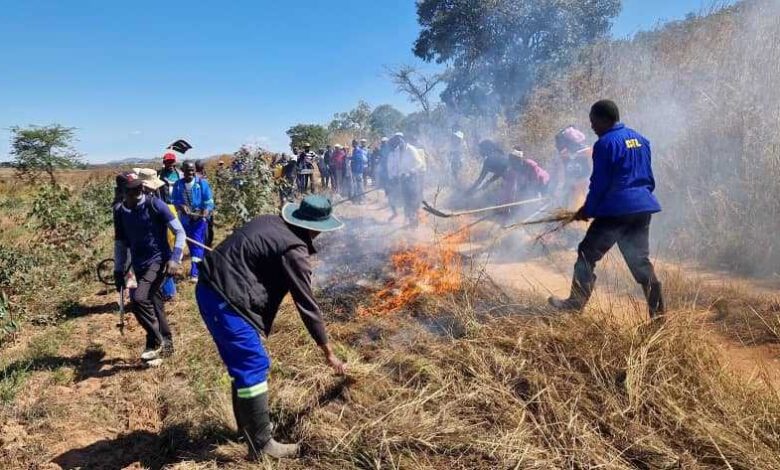TIMB Strengthens Fire Management to Safeguard Tobacco Woodlots and Support Sustainability Goals

The Tobacco Industry and Marketing Board (TIMB) has stepped up fire management measures to protect Zimbabwe’s expanding tobacco woodlots as part of a wider sustainability and afforestation initiative. The intensified efforts were launched on May 30 in Mvurwi, Mashonaland Central, and form part of a nationwide campaign introduced during the official launch of the 2025 Fire Season on May 8 under the theme, “Prevent Veld Fires – Protect Our Environment.”
The campaign is being spearheaded by TIMB’s Sustainability Unit alongside Environmental, Social and Governance (ESG) officers, and focuses on practical training for tobacco farmers and communities across the four major tobacco-growing provinces—Manicaland, Mashonaland Central, Mashonaland East and Mashonaland West. Farmers are being trained in fire preparedness strategies, fuel load assessments, firebreak inspections and early detection techniques, all aimed at reducing fire risks and safeguarding the country’s afforestation gains.
“Our afforestation gains must be protected if we are to realise a greener and more resilient tobacco industry,” said TIMB Acting Chief Executive Officer Mr Emmanuel Matsvaire. “It’s not enough to plant trees, we must ensure they survive. And that means taking veld fire management seriously.”
TIMB’s woodlot programme promotes the planting of fast-growing tree species as an alternative to indigenous forests, which have long been under pressure due to their use in tobacco curing. However, these species are often highly flammable, making them vulnerable to veld fires if not properly managed.
To address this, TIMB is equipping farmers with the knowledge and tools necessary to protect these plantations and reduce fire risks in surrounding communities. “We are not only protecting trees,” Matsvaire noted. “We are protecting Zimbabwe’s future, one woodlot at a time.”
The fire prevention campaign directly supports the Tobacco Value Chain Transformation Plan and aligns with the goals of the National Development Strategy 1 (NDS1). TIMB has also pledged its commitment to the Diplomatic Green Legacy Tree Planting Programme, which was recently launched at the Institute of African Knowledge (INSTAK). This initiative encourages the planting of fast-growing, indigenous, and fruit-bearing trees across the country.
Beyond reducing fire hazards, TIMB’s strategy is designed to enhance rural resilience, promote biodiversity and support long-term environmental and economic sustainability. These efforts are expected to improve rural livelihoods by integrating environmental responsibility into the core of tobacco production.
As the 2025 fire season begins, TIMB is urging all tobacco growers to adopt preventative measures such as maintaining fireguards, removing dry biomass from fields and activating community-based fire response systems. The organisation emphasises that the success of Zimbabwe’s tobacco sector now depends not only on yields but also on how well the industry can safeguard its natural resources.




